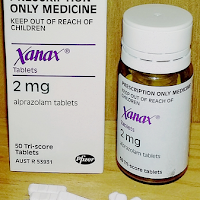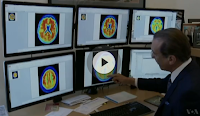
Antibiotics Weaken Alzheimer’s
DRUGS: Long-term antibiotic treatment decreased Alzheimer’s-causing plaques in the lab. It also helped the brain fight inflammation by enhancing the neuroinflammatory activity of microglial cells.

DRUGS: Long-term antibiotic treatment decreased Alzheimer’s-causing plaques in the lab. It also helped the brain fight inflammation by enhancing the neuroinflammatory activity of microglial cells.

Valium, Ativan, Klonopin, Xanax and other benzodiazepines are dementia risks. Approved in the 1960s, doctors still prescribe them. Patients still ask for them, even for

DEMENTIA WITH LEWY BODIES VIDEO: Hallucinations in dementia often pose bigger challenges than memory and cognitive problems. Watch these smart caregiver strategies from the University

HELP FROM THE PHARMACY: Study reveals patients need help managing drugs Community pharmacists could be used more to support patients and carers Assisting carers reduces

COMMONLY PRESCRIBED medications for pain and sleep were linked to a rise in harmful side effects in dementia. Check out the latest research.

MEDICATION & TREATMENT VIDEO: Agitation is one of the most common symptoms of Alzheimer’s. See why citalopram may be effective in alleviating Alzheimer’s agitation and

MEDICATION & MOOD: Aggression and agitation are hard challenges in dementia. An important study may offer some simple answers.

DRUGS: 100 care facilities saw a significant drop in antipsychotics for dementia when staff were trained to focus on “treating the residents as human beings

Woolsey Pharmaceuticals on Feb. 18, 2021 announced the launch of a Phase 2 CNS study of a medication intended to reduce wandering in dementia patients.

AlzForum reports new Alzheimer’s results for FDA-Approved insomnia drug suvorexant (Belsomra®). Half of people with Alzheimer’s don’t sleep well, exacerbating a variety of problems. Learn

Creating peace, calm and a sense of control over their environment is the best gift to give a person living with Alzheimer’s. Learn all about In-Home Routines.

Researchers found in a study that people who developed dementia were more likely to have their credit rating drop at least two and a half years before the diagnosis. Some had problems managing their money up to six years before. Find out more.

A personal diary of a daughter with a medical background that chronicles her journey while caring for her father with Alzheimer’s, and gives the reader the gift of both perspectives, that of a loving daughter and the trained professional.

Memory failing? New research shows you may need help, but not for dementia. Memory slips, stress and fatigue are growing in people with healthy memory.

People worry about becoming forgetful. Is it the first sign of Alzheimer’s or just the passing years? After all, forgetfulness is a normal part of aging. Check out these quick ways to tell the difference.

Researchers found in a study that people who developed dementia were more likely to have their credit rating drop at least two and a half years before the diagnosis. Some had problems managing their money up to six years before. Find out more.

Scientists say restoring a brain protein, not removing amyloid plaques, should be the target of Alzheimer’s dementia therapies. The researchers said treatment might lie in normalizing the levels of a specific brain protein.
No spam, only news and updates.


